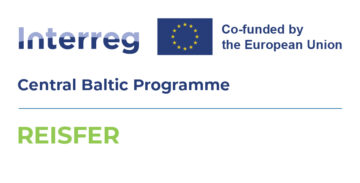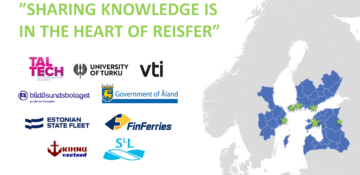REISFER – Reducing CO2 Emissions in Island Ferry Traffic
REISFER is an Interreg Central Baltic Programme 2021-2027 project, co-funded by the European Union and running from 1 April 2024 until the end of March 2027. The Project is a collaboration of nine Partners from three countries enveloping the Baltic Sea – Estonia, Finland (including the Åland Islands) and Sweden:
- Lead Partner: Estonian Maritime Academy of Tallinn University of Technology (EE)
- University of Turku (FI)
- Blidösundsbolaget (SE)
- Kihnu Veeteed (EE)
- FinFerries (FI)
- Estonian State Fleet (EE)
- Government of Åland (AX)
- Swedish National Road and Transport Research Institute (SE)
- Suomenlinnan Liikenne Oy (FI)
While larger vessels often dominate the discussions on decarbonizing the maritime industry, smaller ferries and the archipelago present a unique set of challenges and opportunities for this mission. In the Central Baltic region, ferry connections between the mainland and islands and from one island to another form an essential part of the intermodal transport chains.
The aim of REISFER is to reduce CO2 emissions by 10 – 20 % on selected island ferry routes in Estonia, Finland, Åland Islands and Sweden. Low-carbon fuels, the electrification of ferries and organizational improvements of the whole ferry transport system (e.g. routing, scheduling, enhanced digitalization) provide significant potential to reach this aim. In REISFER, these elements are explored jointly through several pilot activities and knowledge-sharing events.
Follow REISFER on LinkedIn and visit the website REISFER – Central Baltic!

